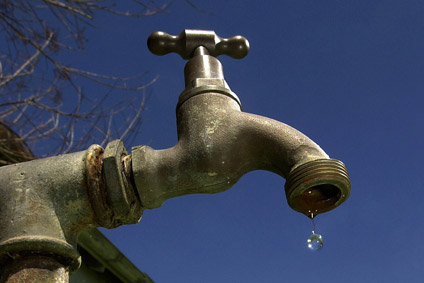Legislators have called upon Finance and Economic Development Minister, Mthuli Ncube, to come up with a special supplementary budget to address the country’s water and sanitation challenges.
This comes at a time when local authorities are struggling to provide uninterrupted water supplies to citizens across the country.
The Bulawayo City Council (BCC) this week began a 24-hour water-shedding programme due to low waters level at its supply dams.
Moving the motion on the supplementary budget for water and sanitation, last Thursday in the National Assembly, Warren Park MP, Shakespeare Hamauswa said Section 77 (a) of the 2013 Constitution of Zimbabwe provides that every citizen has the right to safe, clean and potable water and the State must take reasonable legislative and other measures within the limits of the resources available to it, to achieve the progressive realisation of this right.
“Now, therefore, this House resolves to urgently request for a supplementary budget from the Ministry of Finance and Economic Development which will be devoted solely for water and sanitation in the year 2022, in view of the need to maintain hygienic standards, especially during the COVID-19 global epidemic,” said Hamauswa.
“This budget should address pipe replacement, construction of alternative water sources and treatment plants, rehabilitation of both sewer and water treatment works.”
Dzivarasekwa lawmaker, Edwin Mushoriwa said the challenge of water was a national problem, adding Hamauswa was justified in calling for water challenges to be declared an emergency.
“Everywhere you go, be it an urban or rural area, we have huge challenges. If you look at Harare, Bulawayo, Gwanda and all other urban settlements, you will see that the common denominator and challenges facing the people of Zimbabwe is water,” said Mushoriwa.
“You go to growth points, the challenge is water too. Given such a situation where we have a challenge of water, what needs to be done is for the central government to come in and ensure that all local authorities, be it urban or rural, are well capacitated so that they provide water to each and every person because water, according to our Constitution, is a right. I think it is crucial that we do that.”
Matabeleland South proportional representation MP, Sipho Mokone said Matabeleland South was one of the hardest-hit areas.
“If you check most of the cities across the country, these days, people are drawing water from sources that are very ancient,” said Mokone.
“Cities have been reduced to the early stone age period where people used to draw water from wells. Where I come from in Gwanda in Matabeleland South, a week hardly passes by without a shortage of water. You see towns and borders like Beitbridge and Plumtree running dry.
She added: “And these are key borders in our nation of Zimbabwe, they cannot afford to be without water even for an hour. I have witnessed the provincial capital of Matabeleland South, that is Gwanda, running dry for quite some time. You can think of places like hospitals.”

